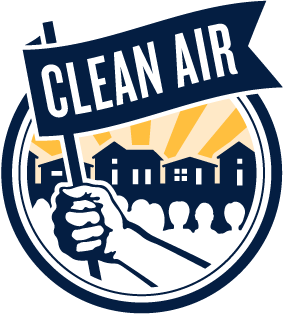Campaigns
Clean Air builds power by developing grassroots leaders who organize their communities to run and win environmental justice and public health campaigns. Our organizing work is planned and executed through campaign teams that consist of members who live in the communities our campaigns are based in.
Organizing is the heart of Clean Air, but just as central is how we build our capacity to organize and lead. We work every day to build community power to reduce environmental risks and better community health. We believe that leaders invest time to build relationships, handle conflicts in a constructive manner, and share control. Teams matter because it is through collective action that we can move decision-makers and control the decisions that impact our lives.
Tonawanda: Clean Air’s work began in the early 2000s with living room conversations between neighbors in Tonawanda about ongoing health issues and the possible links to industrial polluters. Our work continues today with our River Road Watchdog Team, which focuses on clean up processes at former industrial sites as well as oversight of current industries, and with the Tonawanda Tomorrow Team, which focuses on equitable development throughout the Tonawandas. Learn more here.
Seneca Babcock: Since Battaglia Demolition began operations a little over 10 years ago residents of Peabody St. and the surrounding neighborhood have complained to the State and City of Buffalo regarding dust and soot coming from the facility; loud noise beginning early in the morning from the bulldozers and the concrete crusher; and massive truck traffic that is routed down small residential streets. Learn more here.
Delavan Grider: The American Axle site located in Buffalo’s east side Delavan Grider community is ground zero for contamination. State records confirmed that the site contains hazardous oil, grease and PCBs that have leached into the surrounding sewer system. PCBs, toxins banned in 1979, are known to cause cancer as well as a variety of adverse health effects. In 2015, Clean Air joined the resident-based American Axle Steering Committee to organize to stop the toxic runoff and re-mediate legacy waste. Learn more here.
Lovejoy: Residents living in the City of Buffalo’s Lovejoy neighborhood have organized to address quality of life and public health concerns near Geiter Done of WNY, a demolition, disposal and tire shredding facility located on Greene Street. The company’s shredding operations attract substantial tractor trailer traffic, create intense noise pollution and generate “tire dust,” which can damage people’s lungs when inhaled. Learn more here.
North Tonawanda – Cryptocurrency Mining: Clean Air supports the residents of North Tonawanda in their opposition to the sale of the Fortistar facility to Digihost Technologies, and will continue to fight for a Just Transition for all fossil fuel based infrastructure. Learn more here.
Strategies and Frameworks That Inform Our Work
- Participatory Budgeting: PB is a different way to manage public money and to engage people in government. It is a democratic process in which community members directly decide how to spend part of a public budget. It enables taxpayers to work with government to make budget decisions that affect their lives. Learn more here.
- Just Transition: For us, a just transition means building an economy that provides family sustaining jobs and consistent tax revenue, while improving the environment, public health, and democracy. With our partners in organized labor we have lead the charge in Tonawanda, NY with the retirement and transition of the NRG Huntly plant, and in South Buffalo with organizing efforts to unionize Tesla Gigafactory 2. Learn more here.
